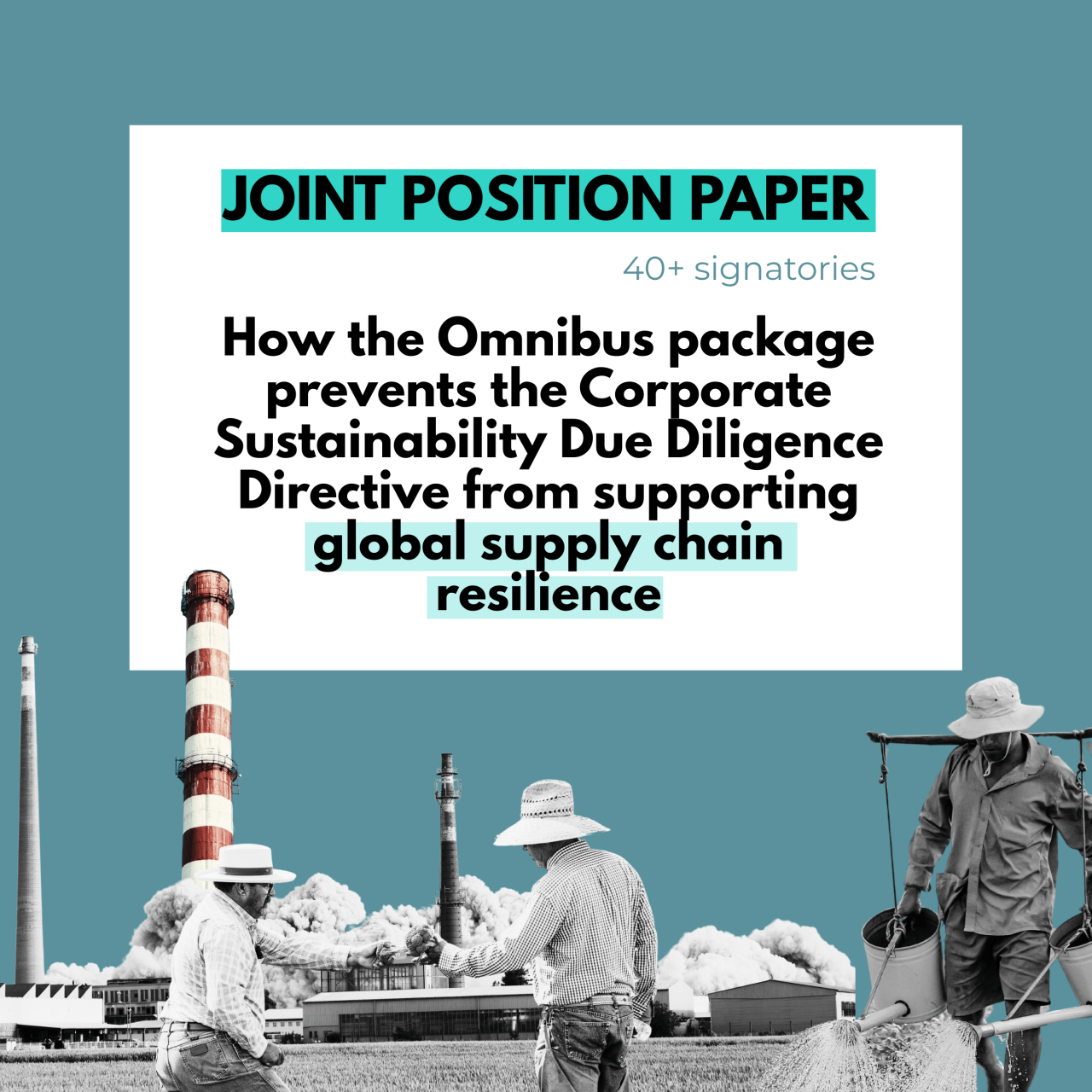Making human rights due diligence frameworks work for small farmers and workers
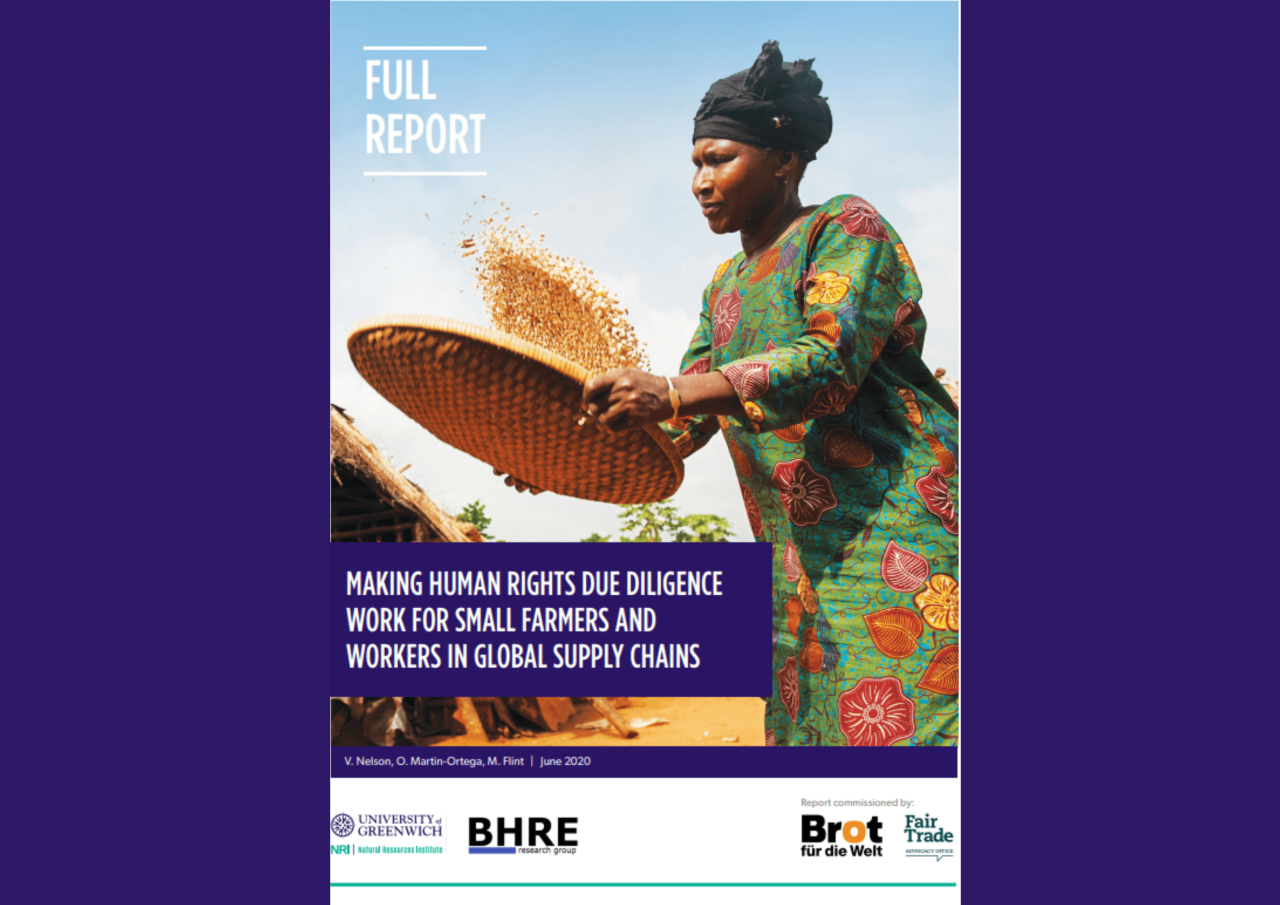
To answer this question, the Fair Trade Advocacy Office (FTAO), along with Brot für die Welt, commissioned the University of Greenwich (UK) to look into how HRDD can have a positive impact on small farmers and workers and on how fair purchasing practices, living wages and living incomes can be addressed by HRDD frameworks and instruments.
This report ‘Making human rights due diligence frameworks work for small farmers and workers in global supply chains’, by Professor Valerie Nelson, Professor Olga Martin-Ortega and Michael Flint, presents the current evidence on the impact of human rights due diligence on the ground in two sectors: agriculture and textiles. It also provides a series of recommendations on how policymakers can develop effective mandatory human rights due diligence frameworks.
More From The Workstream
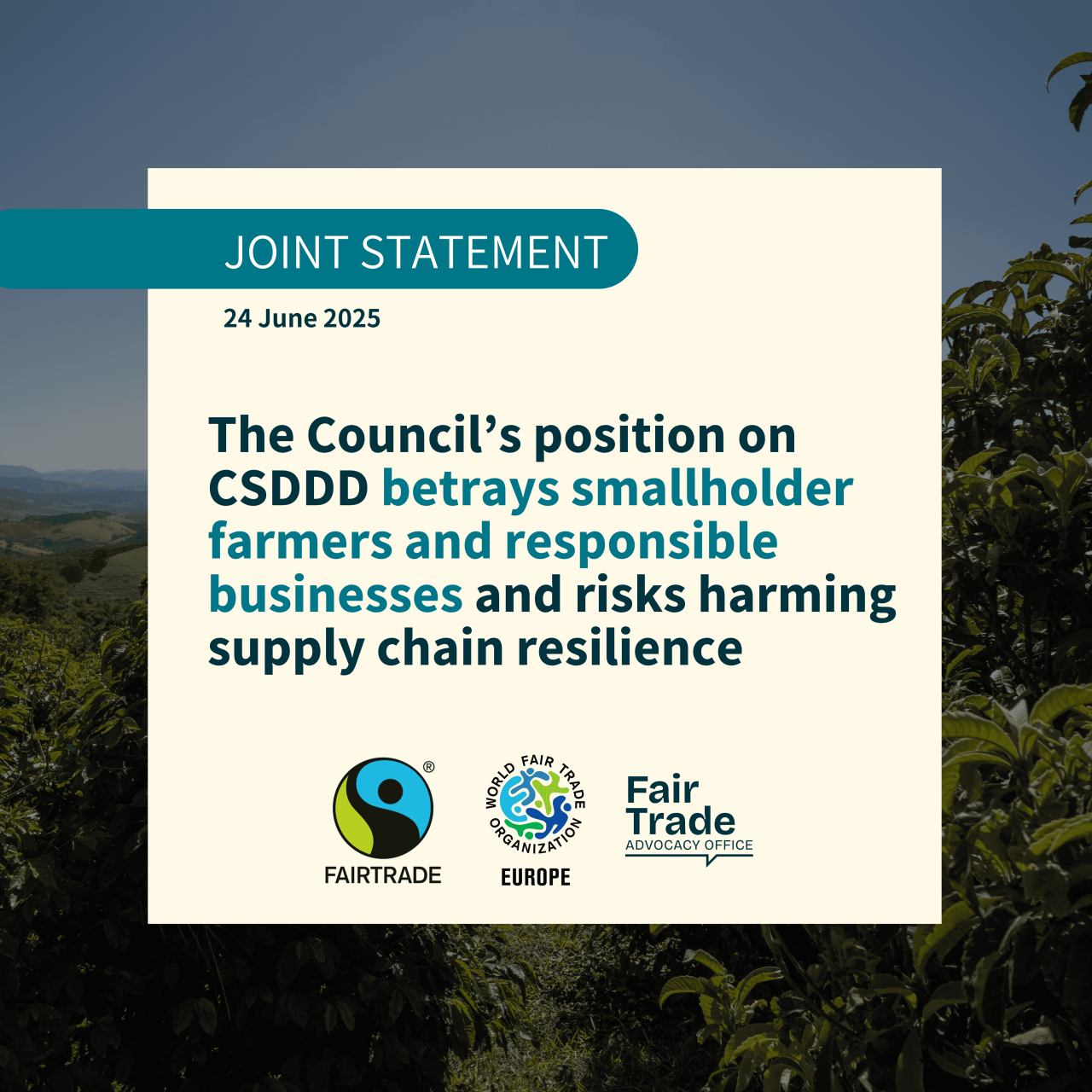
The Council’s position on CSDDD betrays smallholder farmers and responsible businesses and risks harming supply chain resilience
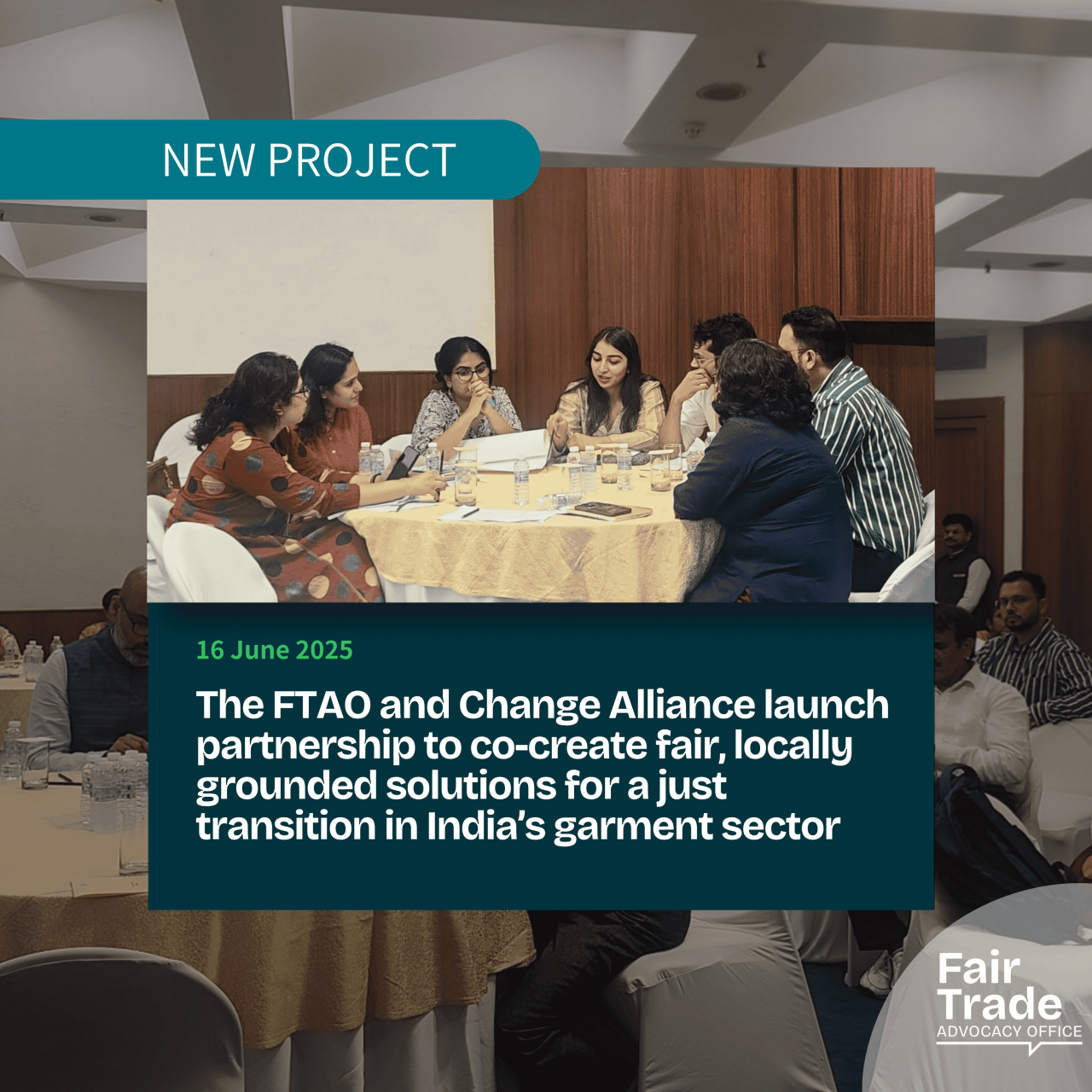
Co-creating responsible business solutions in India’s garment sector
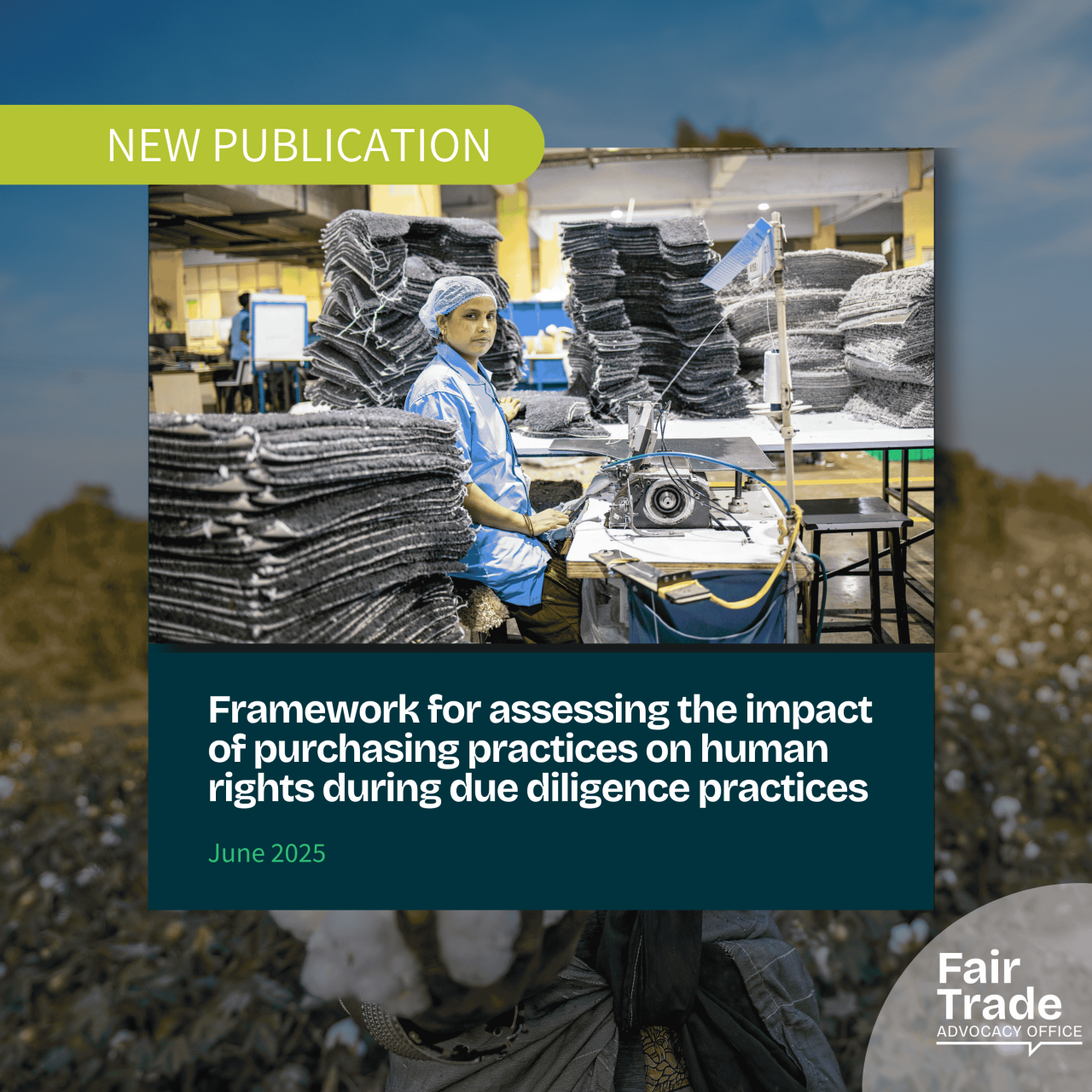
Framework for assessing the impact of purchasing practices on human rights during due diligence practices
